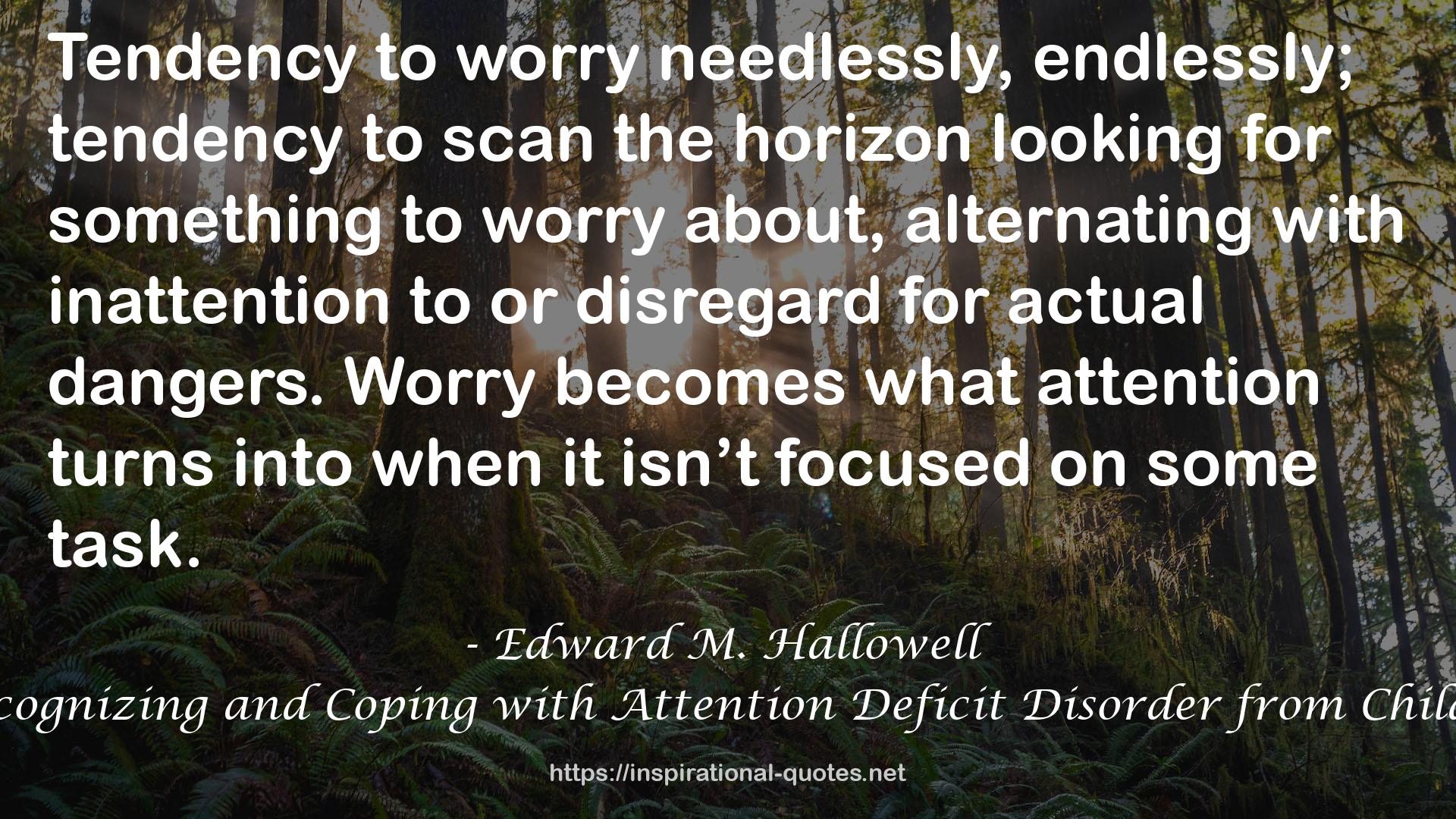38
" In Silver’s model this injured filter system, which is regulated by the catecholamines, doesn’t screen out irrelevant information and sensory stimuli as efficiently as it should, thereby letting everything that registers at the desk of the reticular activating system arrive in the rooms of the frontal regions of the brain. The individual is bombarded, taking care of ten thousand guests in a hotel built for one thousand, on overload all the time, receiving messages about every minute aspect of his or her experience. It is no wonder, then, that the individual would be distractible or, as Silver would argue, inclined to withdraw from it all and shut the damned hotel down. "
― Edward M. Hallowell , Driven to Distraction: Recognizing and Coping with Attention Deficit Disorder from Childhood Through Adulthood
40
" Throughout childhood, at home and at school they are told they are defective. They are called dumb, stupid, lazy, stubborn, willful, or obnoxious. They hear terms like “spaceshot” or “daydreamer” or “out in left field” all the time. They are blamed for the chaos of family mealtimes or the disaster of family vacations. They are reprimanded for classroom disturbances of all sorts and they are easily scapegoated at school. They are the subject of numerous parent-teacher conferences. Time and again, an exasperated teacher meets a frustrated parent in a meeting that later explodes all over the child who isn’t there. He feels the shock waves afterward. “Do you know what your teacher said? Do you know how embarrassed your mother and I were?” Or, from the teacher, “I understand you have no greater control of yourself at home than you do in school. We must work on this, mustn’t we?” Month after month, year after year, the tapes of negativity play over and over again until they become the voice the child knows best. “You’re bad,” they say in many different ways. “You’re dumb. You just don’t get it. You’re so out of it. You really are pathetic.” This voice pulls the child’s self-esteem down and down, out of the reach of the helping hands that might be extended, into the private world of adolescent self-reproach. Liking yourself in adolescence is hard enough work for any child. But for the child with ADD it is especially difficult. "
― Edward M. Hallowell , Driven to Distraction: Recognizing and Coping with Attention Deficit Disorder from Childhood Through Adulthood
 Driven to Distraction: Recognizing and Coping with Attention Deficit Disorder from Childhood Through Adulthood
Driven to Distraction: Recognizing and Coping with Attention Deficit Disorder from Childhood Through Adulthood